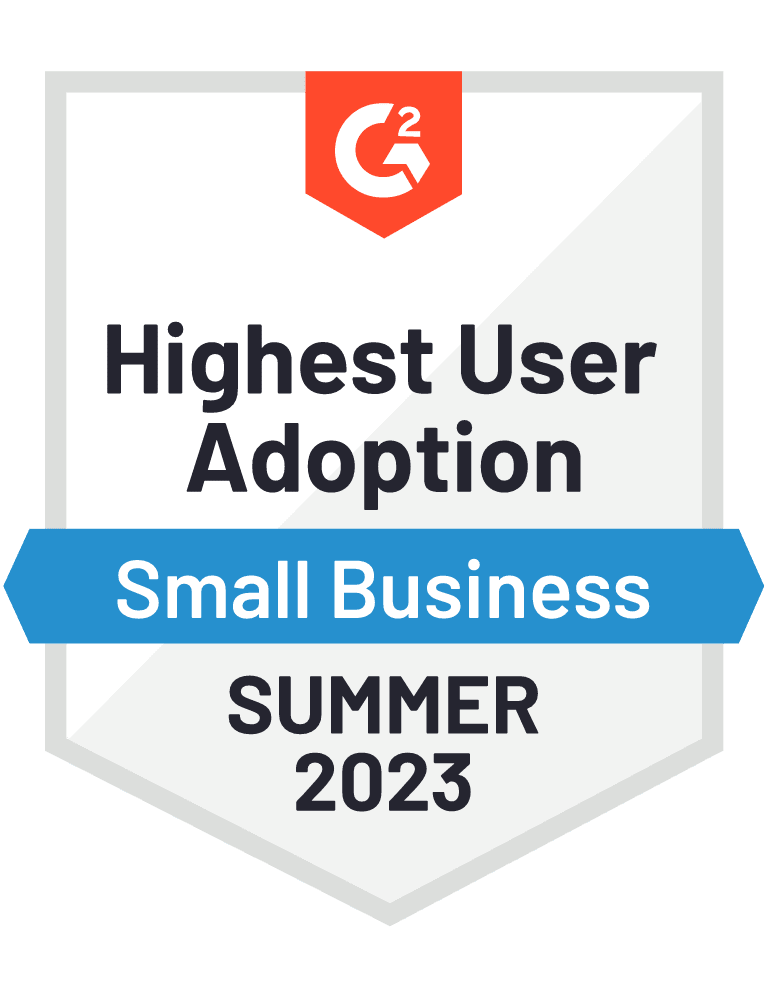Do more for
your mission.
With the only board management software designed specifically for nonprofits.
Loved and trusted by

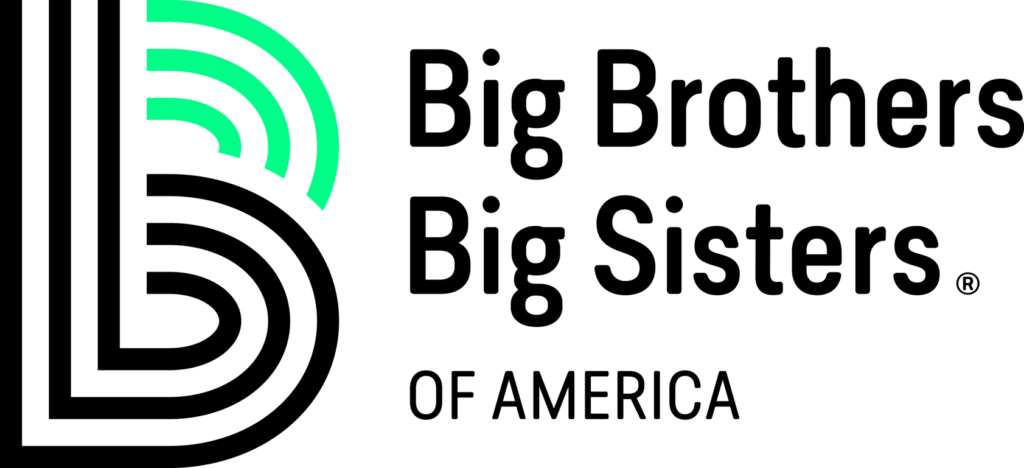
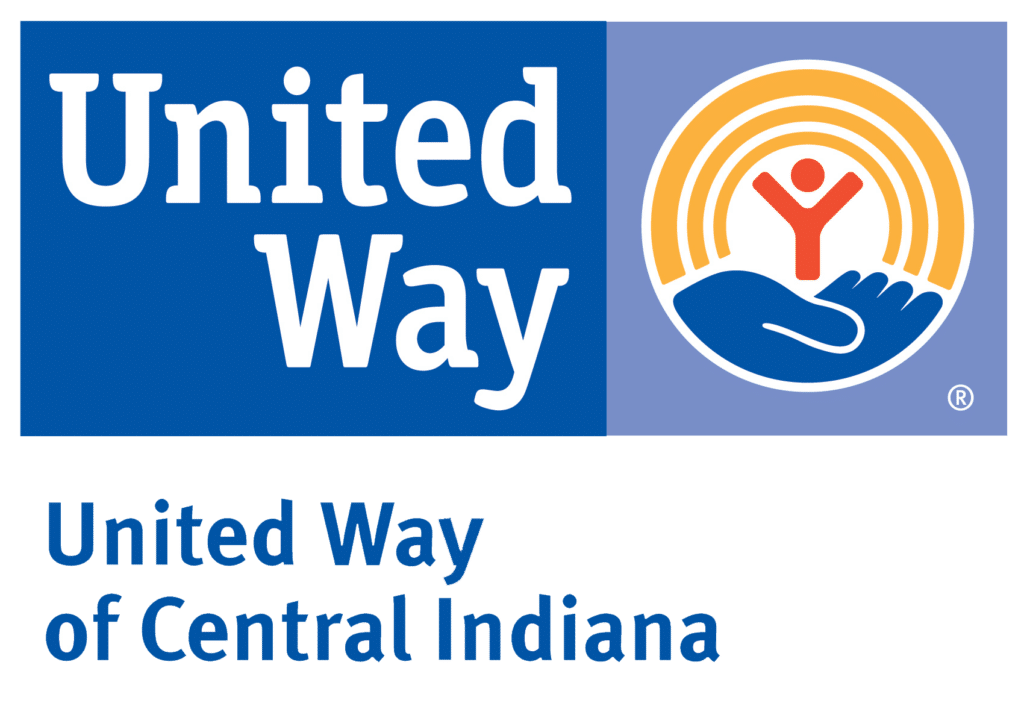

One Solution to Empower Your Team
We know first-hand how complex and friction-full it can be for board members and committees to collaborate, plan, make strategic decisions, and communicate those decisions with the right context to the rest of your organization.
That’s why Boardable works with you (and for you) to clear the roadblocks and distractions. We do more for nonprofits, so that they can do more for others.
Effectiveness with Ease
No matter how your board members prefer to operate, Boardable fits seamlessly into your existing workflows and suggests efficiencies where appropriate.
Built for Success
A new level of sophistication for all of your board operations, designed for nonprofits that need more in order to do more.
Informed by Experience
Our team members use our own experiences serving on nonprofit boards to design a best-in-class product for those who are frequently asked to do more with less.
Discover Resources for Nonprofit Board Management
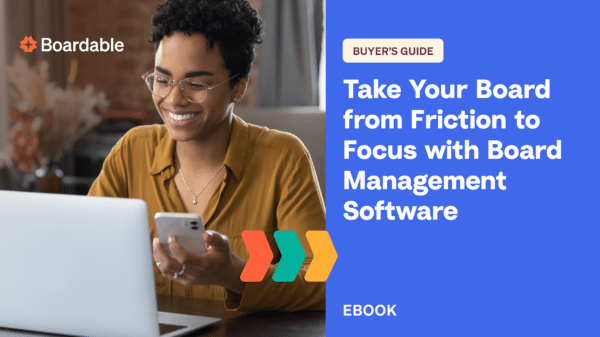
E-books & Whitepapers
Board & Committee Meetings
Buyer’s Guide: Take Your Board from Friction to Focus with Board Management Software
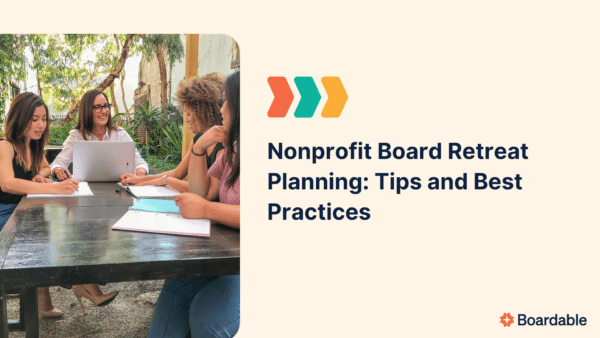
Blogs
Board Engagement
Nonprofit Board Retreat Planning: Tips and Best Practices
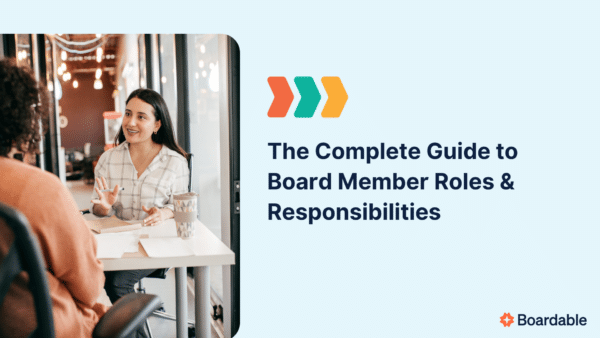
Blogs
Board Roles & Responsibilities
The Complete Guide to Board Member Roles & Responsibilities
Plans Made To Fit Any Size Organization
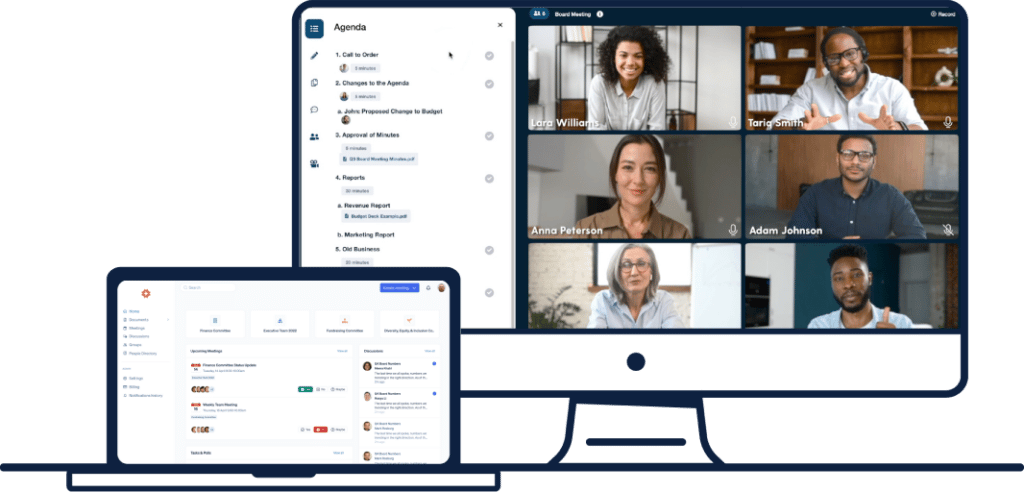
Board Management Software Designed Specifically for Nonprofits Operating at the Next Level




